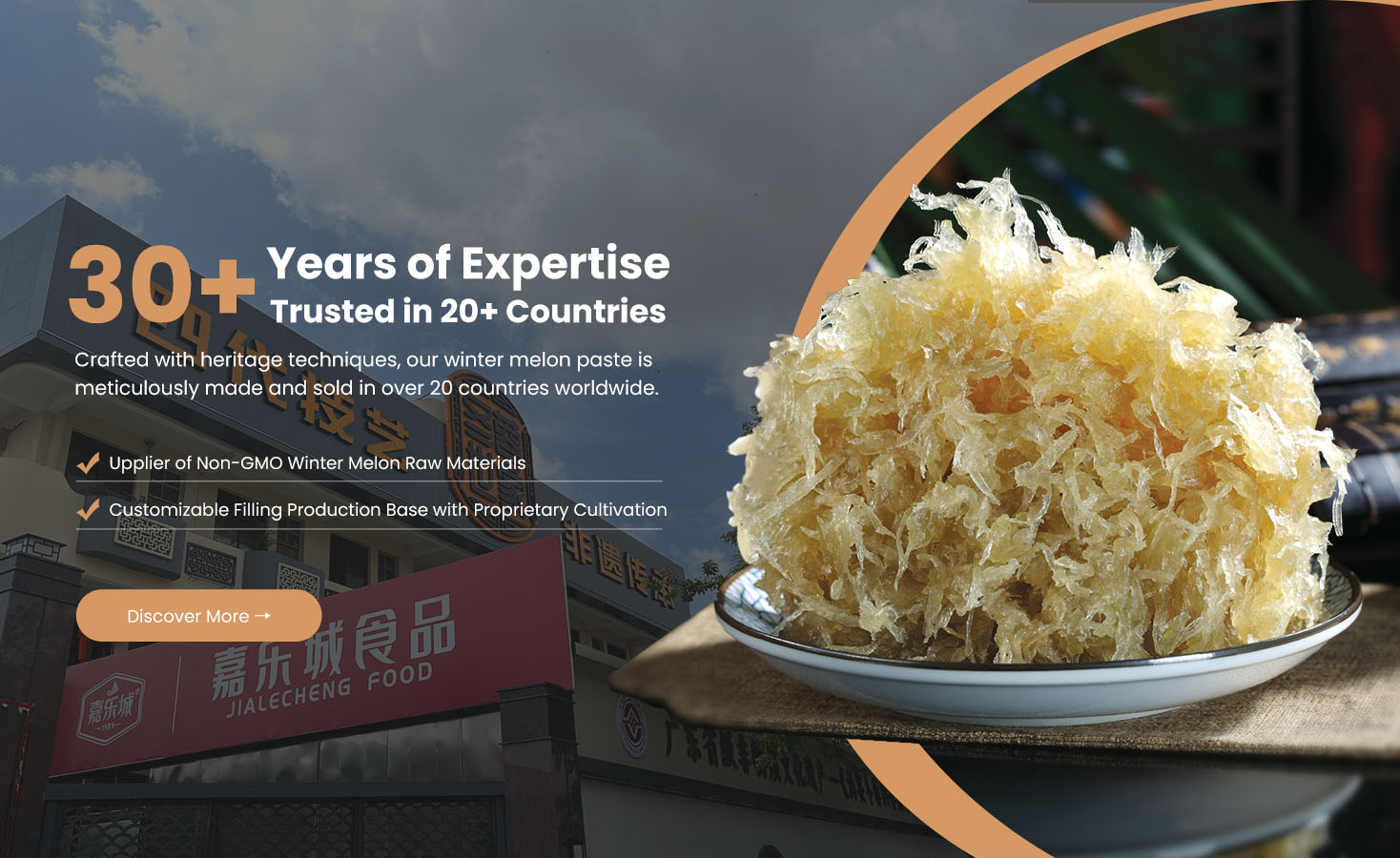Can You Provide Refrigerated Or Frozen Shipping Options To Maintain Freshness?
Yes. Jialecheng Foods can provide refrigerated or frozen shipping options to ensure product freshness, especially for items like winter melon paste and other fillings that require temperature control during transport. Below is a professional overview of how to implement and manage cold-chain shipping effectively.
Table of Contents
Why Refrigerated or Frozen Shipping Is Necessary
For food manufacturers, freshness directly impacts flavor, texture, and safety. Refrigerated or frozen shipping allows:
Extended shelf life — slows down bacterial growth and oxidation.
Preserved product quality — maintains color, aroma, and texture.
Compliance with food safety standards — meets requirements of international import and export regulations.
Brand reputation — demonstrates reliability and care in logistics.
For Jialecheng Foods, this ensures that the signature winter melon paste and related products reach clients with consistent taste and quality.
Cold-Chain Shipping Components
| Component | Function |
|---|---|
| Insulated Packaging | Keeps temperature stable inside the box. Commonly made of foam panels or insulated liners. |
| Refrigerants | Ice gel packs for chilled goods (0–4 °C) or dry ice/frozen gel packs for frozen goods (below –18 °C). |
| Vacuum Sealing / Food-Grade Bags | Prevent moisture loss and contamination. |
| Temperature Data Loggers | Monitor and record internal temperature throughout transit. |
| Refrigerated Transport Carriers | Specialized logistics providers with controlled temperature vehicles or storage. |
| Clear Labeling | Mark “Keep Refrigerated” or “Frozen Product” on packaging for handling compliance. |
Step-by-Step Shipping Process
1. Determine the Temperature Range
Refrigerated: 0 °C – 4 °C for semi-solid or preserved fillings.
Frozen: ≤ –18 °C for products intended for long-term storage or export.
2. Package Properly
Use a foam-insulated outer box lined with moisture barriers.
Place refrigerants evenly around the product to maintain temperature balance.
Avoid direct contact between product and dry ice.
3. Seal and Label
Seal the package with durable tape and moisture-resistant liners.
Label clearly with handling instructions such as “Perishable – Keep Refrigerated.”
4. Select Reliable Logistics Partner
Choose carriers offering temperature-controlled shipping or express cold delivery services.
Verify compliance with food-grade transport regulations (HACCP, ISO 22000).
5. Track and Record
Attach a temperature logger inside one of the boxes.
Review temperature data after delivery to ensure quality control.
Key Considerations
Transit time: Choose 48 hours or less shipping whenever possible.
Cost: Cold shipping is more expensive; optimize routes and packaging volume to manage expenses.
Regulations: Follow country-specific food import and cold-chain standards.
Testing: Conduct pilot shipments before large-scale export to confirm stability.
Example for Jialecheng Foods
If Jialecheng Foods ships winter melon paste to overseas bakeries or distributors:
Domestic shipments (within China): Use refrigerated transport at 0–4 °C with gel packs.
Export shipments: Freeze the paste at –18 °C, use insulated boxes with dry ice, and choose a carrier that offers cold-chain service from warehouse to airport and destination port.
Short-term wholesale deliveries: Combine gel packs and express air freight to minimize cost while maintaining safety.
Summary
| Step | Action | Temperature |
|---|---|---|
| 1 | Identify product type | Chilled or Frozen |
| 2 | Package with insulation and refrigerant | 0–4 °C / ≤ –18 °C |
| 3 | Label and seal properly | “Keep Refrigerated / Frozen” |
| 4 | Use certified cold-chain carriers | – |
| 5 | Monitor temperature with data logger | – |
Conclusion
Offering refrigerated or frozen shipping strengthens Jialecheng Foods’ reliability as a global supplier. By maintaining strict temperature control, the company can ensure product freshness and safety across long distances while meeting international food logistics standards.




